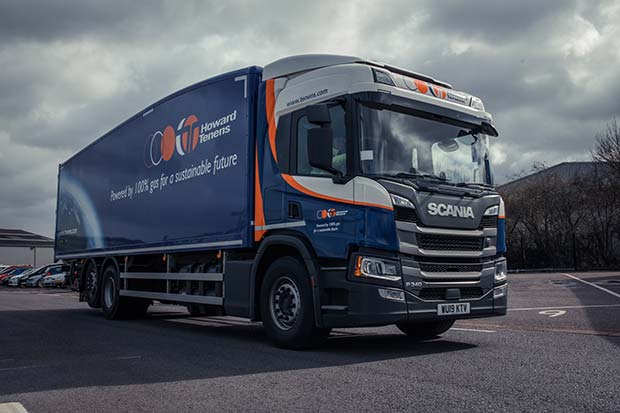Howard Tenens, one of the UK’s largest independentlyowned logistics providers, delivering bespoke supply chain solutions, took delivery of two 26 tonne 340 BHP dedicated CNG (compressed natural gas) rigids from Scania, bringing the total number of dedicated gas vehicles to four. The purchase of the two vehicles was made following the highly successful trial of two Scania 26 tonne gas rigids which began in October 2017. These vehicles were the first of their type to be operated in the UK. As per the first two vehicles, Don Bur were selected to provide the trailer bodies with their iconic Teardrop design to improve aerodynamic flow and reduce fuel consumption.

All four vehicles are based in Swindon and are being trialled under the Dedicated to Gas Project which is part of the Low Emission Freight and Logistics Trial, funded by the Office for Low Emission Vehicles (OLEV) in partnership with Innovate UK. Each of the two dedicated gas vehicles in the 2017 trial have now travelled over 200,000 km to date. During that time there have been zero breakdowns or faults with the gas system. This excellent performance gave Howard Tenens the confidence it needed to invest in a further two vehicles when the opportunity arose. Furthermore, the vehicles have had excellent driver feedback with no difference in performance observed between the diesel and gas models.
The two new rigids are the latest generation models and have improved fuel efficiency and range compared to the existing models. The performance of the vehicles will be carefully monitored and evaluated throughout the trial, answering prevalent questions regarding fuel efficiency, reliability and cost as well as the environmental benefits compared to conventional diesel-powered vehicles.
The dedicated gas trucks are powered solely by biomethane, which gives a reduction in carbon dioxide emissions of 75% compared to diesel. Gas technology is one of the few viable options for decarbonising freight, particularly for heavy goods vehicles where electric and hybrid options are not yet feasible, therefore having an important role to play in helping the UK meet its carbon reduction targets.





Comments are closed.